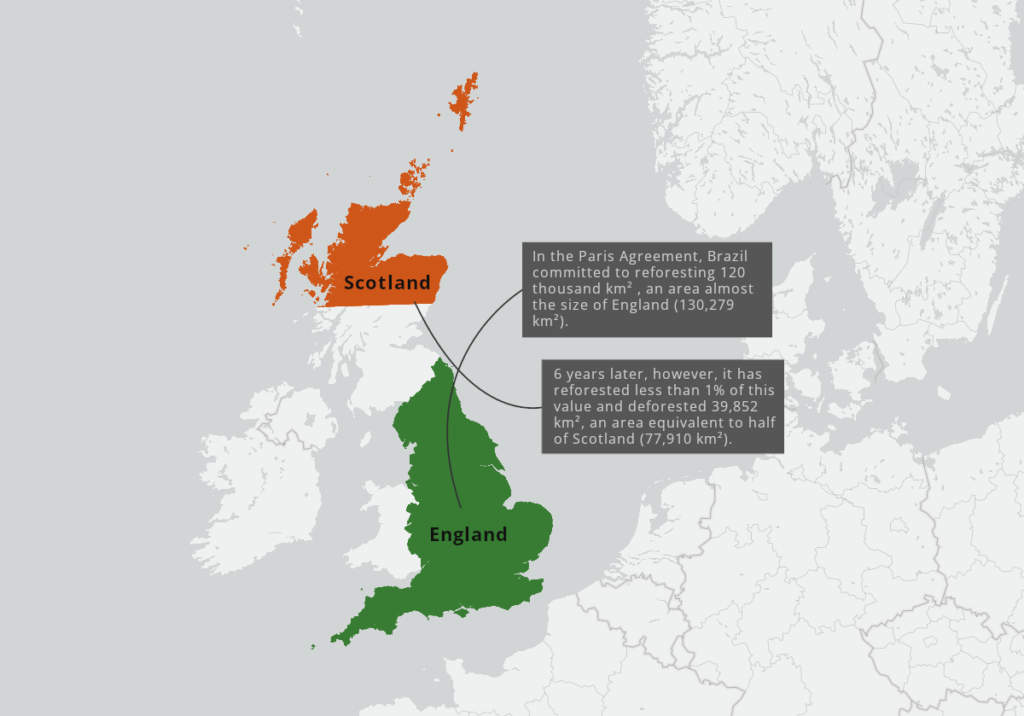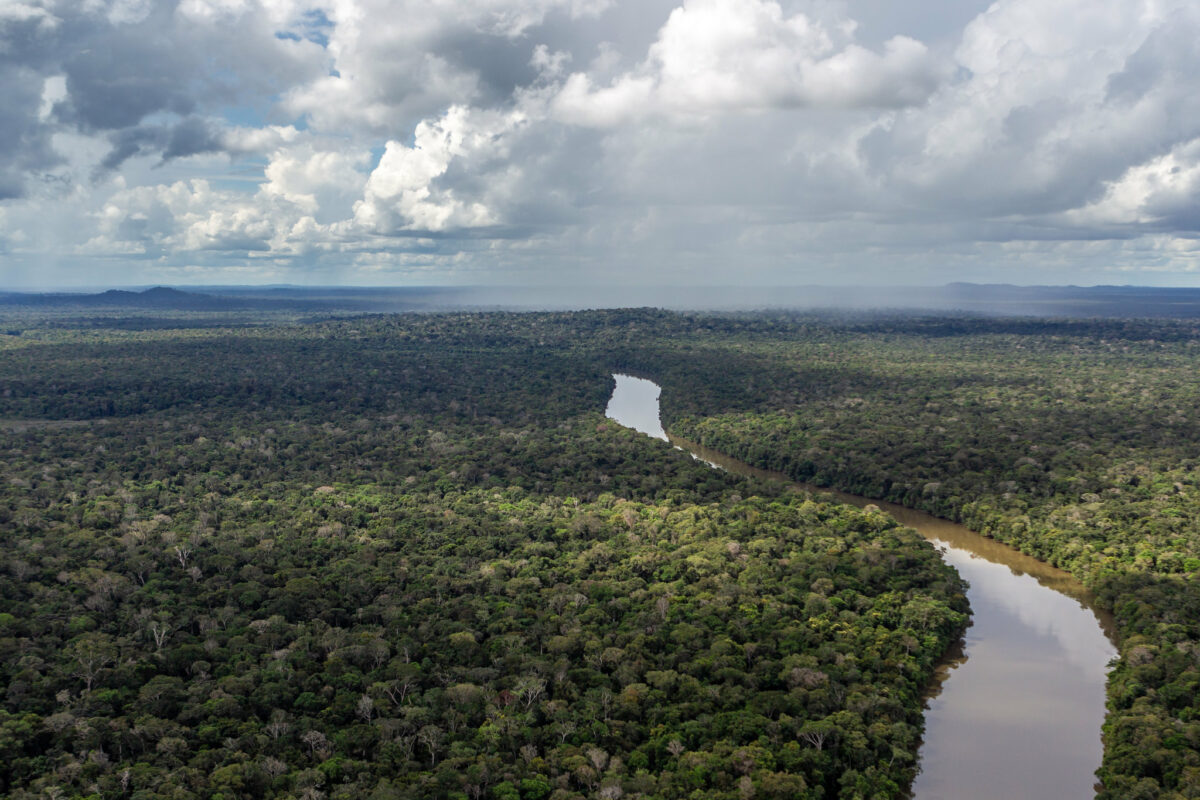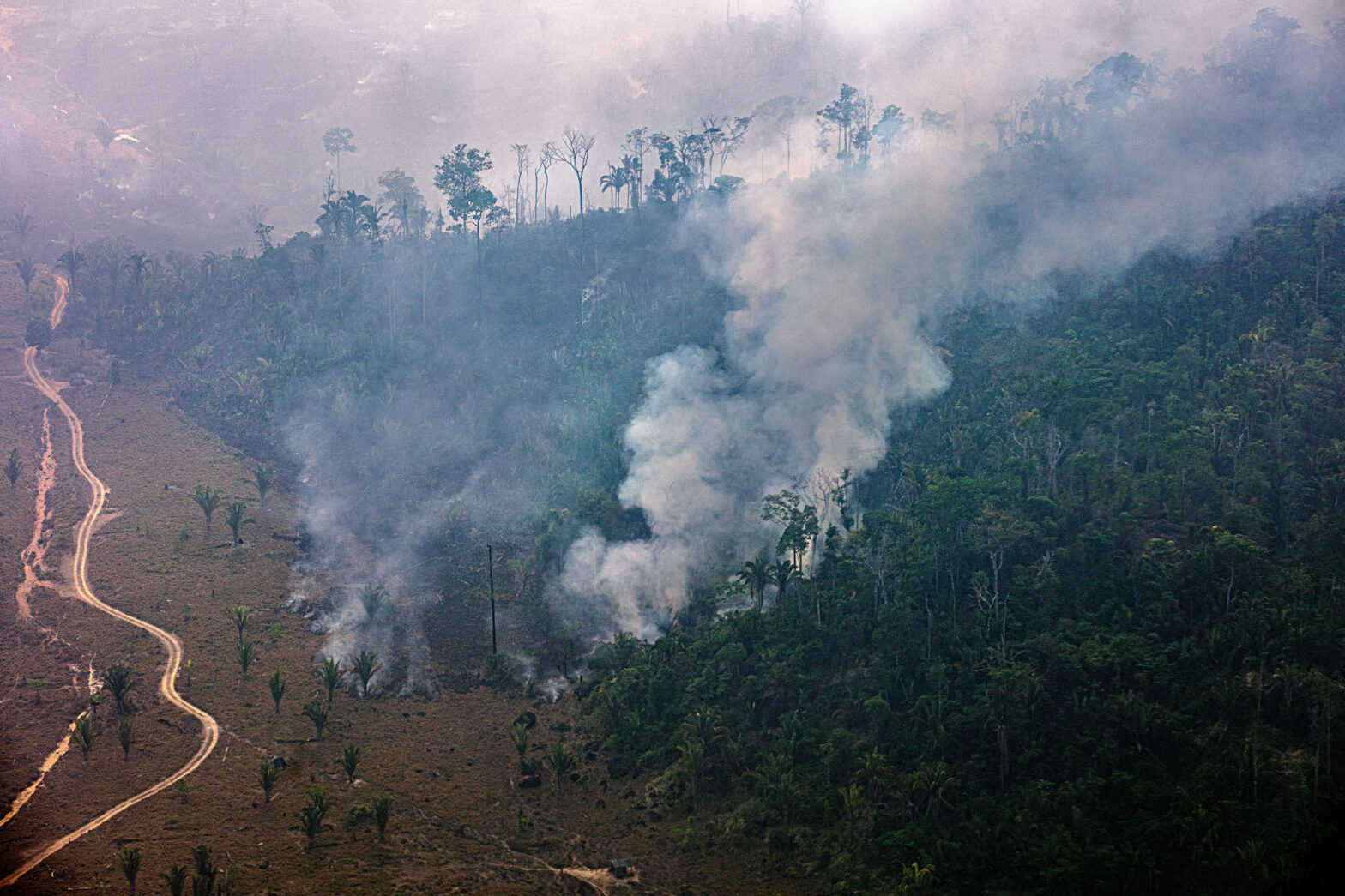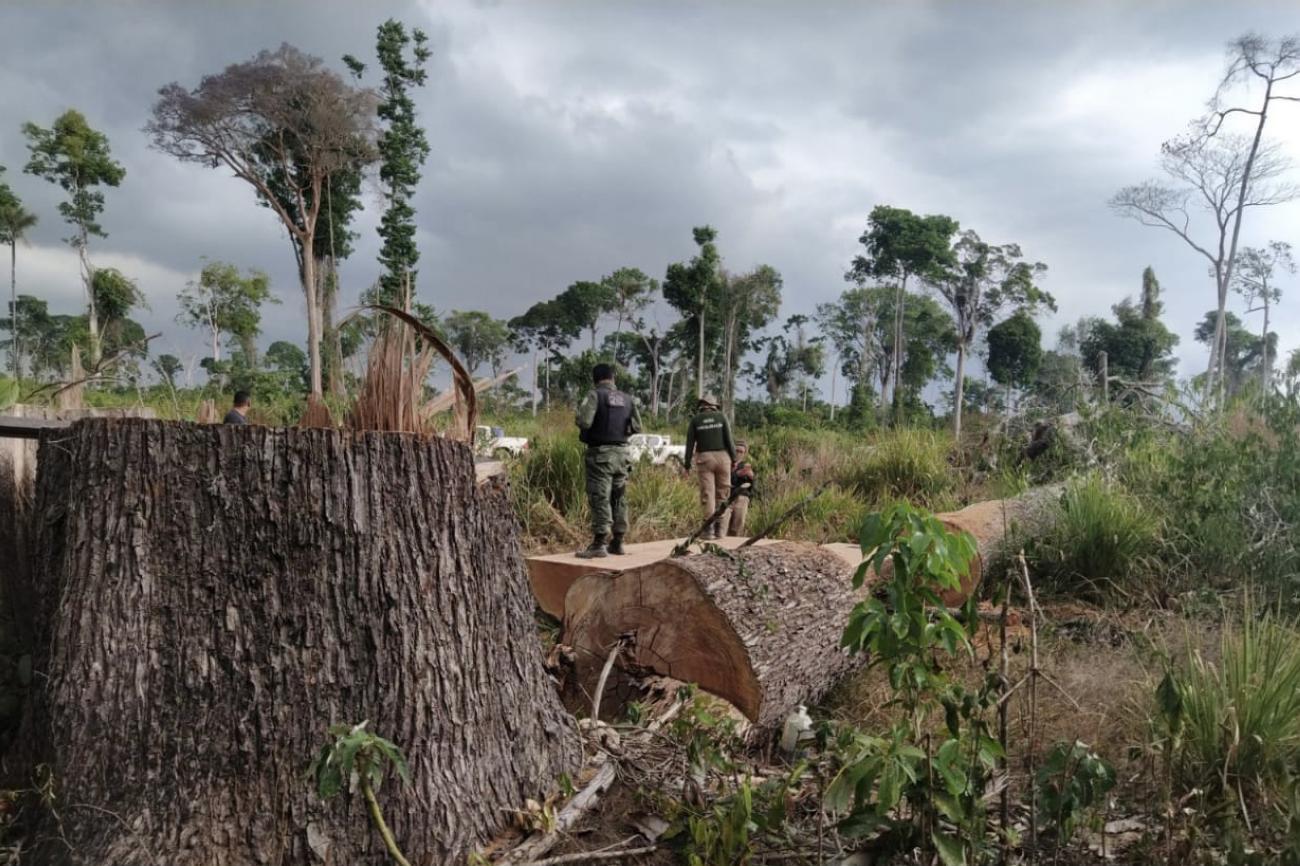The country abandoned the agreement signed in 2015 last year but has now committed itself again to similar goals for cutting emissions and protecting forests. Experts believe that the agreement is good news, but they view Brazil’s position with skepticism.
After a lack of definition that lasted until the beginning of the debates at the Climate Summit this Monday (1st), the Bolsonaro government announced new targets for cutting greenhouse gas emissions, and today (2nd) signed a declaration with another hundred countries for forest protection. These measures may open the path to foreign resources for conservation in Brazil. Experts viewed the gesture with skepticism.
In this Forest Deal, the country is once again committed to eliminating illegal deforestation between 2022 and 2028. Until then, Brazil has committed to reducing these crimes by 15% per year until 2024, 40% per year until 2026, 50% in 2027, and 100% in 2028. Deforestation and agriculture now account for almost 70% of the country’s total greenhouse gas emissions.
InfoAmazonia calculations based on deforestation alerts from the National Institute for Space Research’s (INPE) DETER system show that Brazil has deforested a third of the goal for forest restoration that it signed in December 2015 in the Paris Agreement. The country committed to recovering 12 million hectares of native vegetation by 2030, but it has moved in the opposite direction, increasing deforestation – about 4 million hectares of forests have been felled in the Amazon (40 thousand km²).

According to the Restoration and Reforestation Observatory, only 79,000 hectares were actively restored with native trees, or 0.65% of the Brazilian target in effect since the beginning of 2016. Eleven million hectares are regenerating naturally, almost all of it in the Amazon.





